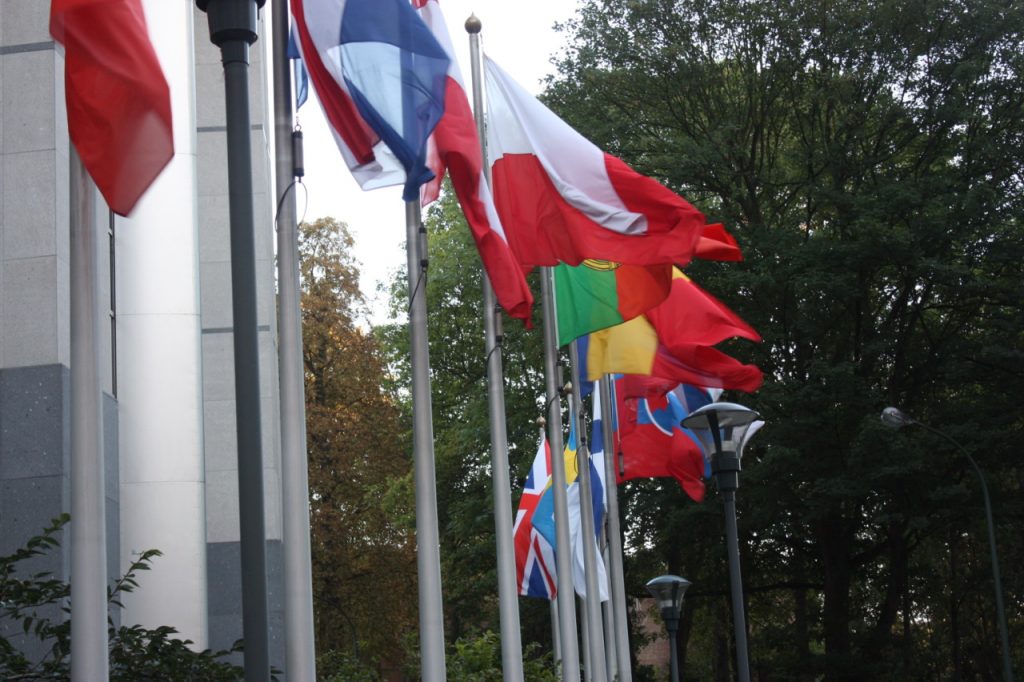New 2030 EU Renewable Energy Targets behind industry expectations
In a statement on the newly agreed EU 2030 Renewable Energy Targets various renewable energy groups give their cautious approval to the outcomes of the negotiations between the European Union co-legislators on the Renewable Energy Directive, but consider them to not be sufficient to reach requirements of the climate mitigation objectives set in the Paris Agreement.
As European leaders agree on a 2030 target, the renewable industry waits to be impressed, so the first reaction by a group of renewable energy organisations in Europe.
The renewable energy industry associations give a cautious approval to the outcomes of the negotiations between the European Union co-legislators on the Renewable Energy Directive, setting the objective for renewable energy deployment in the upcoming decade. The 32% renewable energy target to 2030 is a welcome improvement compared to what had been proposed back in November 2016, which was based on outdated assumptions set in 2014. Yet, it does not quite set the European Union on a pathway consistent with the requirements of the climate mitigation objectives set in the Paris Agreement.
The European Renewable Energy industry had already jointly called for at least 35% target and continues to recognize this figure as the lower bound to put the EU on a pathway for net-zero carbon emissions in 2050, as is the stated objective of the European Commission while considering its mid-century climate strategy. The European energy sector must fully decarbonise to comply with the objective to keep average global temperature increase below 1.5°C.
An ambitious 2030 objective is key for a strong and vibrant domestic market that ensures Europe reaps the economic benefits of a clean and efficient energy system fit for the twenty-first century in face of increasing international competition. Renewable energy technologies are the base of a robust industrial sector which creates many high-quality jobs and represents an opportunity for a social transition of the workforce away from the fossil industry.
“32% is a pragmatic compromise but it is a missed opportunity to ensure that Europe remains the world leader in renewables. We hope individual Member States, in the implementation phase, will understand the benefits of developing a strong renewable energy industry, paving the way to economic growth and affordable sustainable energy for citizens and industries.” Jean-Marc Jossart, Secretary General, AEBIOM.
“Biogas contributes to the greening of the both grids, gas and electricity, by providing flexible and secure supply of energy, thereby backing up the energy transition driven by the full mix of renewable energy sources.” Susanna Pflüger, Secretary General of EBA
“Renewable technologies, such as geothermal, offer reconversion opportunities for workers from many industrial sectors. They also contribute to local economic development with induced jobs, improved quality of life and reduction of energy poverty.” Philippe Dumas, EGEC Secretary General.
“We would have wished for more ambition in light of the traditional underestimation of what is possible and the substantial evidence from the IRENA study showing that 34% is not ambitious but only cost-efficient.” Thomas Nowak, Secretary General, EHPA
“On one hand, we now can move forward and work for progressive enforcement of the Directive into national legislations, on the other hand it is still hurting that currently big Member States‘ ministers show no ambition honoring Paris and the renewable energy sector”. Director Dr. Dörte Fouquet, EREF
“These targets, once achieved, will have a far-reaching, positive impact on industrial activities along the full value chain of RES industries including trading – as well as on the excellence of European Research and Innovation activities (a.o. the world technology leadership in STE/CSP still held by Europe).” Marcel Bial, Secretary General of ESTELA (European Solar Thermal electricity Association)
“The agreement is a clear improvement on the starting point, particularly for the decarbonisation of the heating sector with an agreed 1.3 percentage point annual increase share of renewables, but we are disappointed that the EU remains below its potential to generate its own clean energy: renewable, sustainable, that reduces our dependency on fossil fuels imports and contributes to our Paris commitments!” Pedro Dias, Secretary General Solar Heat Europe.
As highlighted by the Clean Energy Industrial Forum, renewables also contribute to bettering the EU’s trade imbalance, through the export of technologies, systems or services. A robust target is the foundation of a stable investment environment which enables renewable energy deployment.
In order to remain world’s number one in renewables, a forward-looking framework for the Governance of the Energy Union should be set to ensure the target laid in the Renewable Energy Directive for 2030 is achieved, and if possible exceeded.
Signatories: AEBIOM, EBA, EGEC, EHPA, EREF, ESTELA, EUREC, Ocean Energy Europe, Solar Heat Europe
Source: Release by EGEC by email


















